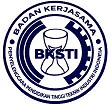Algoritma memetic untuk penjadwalan multi-tujuan flow-shop memperhitungkan konsumpsi energi
Abstract
Keywords
Full Text:
PDF (IDN)References
Energy Information Administration, “International energy outlook 2019 with projections to 2050,” Washington DC, 2019.
S. Okajima and H. Okajima, “Analysis of energy intensity in Japan.,” Energy Policy, vol. 61, pp. 574–586, 2013, doi: 10.1016/j.enpol.2013.05.117.
T. Peng, K. Kellens, R. Tang, C. Chen, and G. Chen, “Sustainability of additive manufacturing: An overview on its energy demand and environmental impact,” Additive Manufacturing, vol. 21, pp. 694–704, May 2018, doi: 10.1016/j.addma.2018.04.022.
K. Kellens, R. Mertens, D. Paraskevas, W. Dewulf, and J. R. Duflou, “Environmental impact of additive manufacturing processes: Does AM contribute to a more sustainable way of part manufacturing?,” Procedia CIRP, vol. 61, pp. 582–587, Jan. 2017, doi: 10.1016/j.procir.2016.11.153.
Y. Tang, K. Mak, and Y. F. Zhao, “A framework to reduce product environmental impact through design optimization for additive manufacturing,” Journal of Cleaner Production, vol. 137, pp. 1560–1572, Nov. 2016, doi: 10.1016/j.jclepro.2016.06.037.
J. P. Seclen-Luna, P. Moya-Fernández, and Á. Pereira, “Exploring the effects of innovation strategies and size on manufacturing firms’ productivity and environmental impact,” Sustainability, vol. 13, no. 6, p. 3289, Jan. 2021, doi: 10.3390/su13063289.
P. K. Halder, N. Paul, M. U. H. Joardder, and M. Sarker, “Energy scarcity and potential of renewable energy in Bangladesh,” Renewable and Sustainable Energy Reviews, vol. 51, pp. 1636–1649, Nov. 2015, doi: 10.1016/j.rser.2015.07.069.
G. Bridge, “Energy (in)security: world-making in an age of scarcity,” The Geographical Journal, vol. 181, no. 4, pp. 328–339, 2015, doi: 10.1111/geoj.12114.
B. Kurniawan, A. A. Gozali, W. Weng, and S. Fujimura, “A genetic algorithm for unrelated parallel machine scheduling minimizing makespan cost and electricity cost under time-of-use (TOU) tariffs with job delay mechanism,” in 2017 IEEE International Conference on Industrial Engineering & Engineering Management, Dec. 2018, pp. 583–587, doi: 10.1109/IEEM.2017.8289958.
G. Mouzon and M. B. Yildirim, “A framework to minimise total energy consumption and total tardiness on a single machine,” Int. J. Sustain. Eng., vol. 1, no. 2, pp. 105–-116, 2008, doi: 10.1080/19397030802257236.
S. Rubaiee, S. Cinar, and M. B. Yildirim, “An Energy-Aware Multiobjective Optimization Framework to Minimize Total Tardiness and Energy Cost on a Single-Machine Nonpreemptive Scheduling,” IEEE Trans. Eng. Manag., vol. 66, no. 4, pp. 699–714, Nov. 2019, doi: 10.1109/TEM.2018.2846627.
S. Gürel, H. Gultekin, and V. E. Akhlaghi, “Energy conscious scheduling of a material handling robot in a manufacturing cell,” Robotics and Computer-Integrated Manufacturing, vol. 58, pp. 97–108, Aug. 2019, doi: 10.1016/j.rcim.2019.02.002.
Y. Lu, J. Lu, and T. Jiang, “Energy-conscious scheduling problem in a flexible job shop using a discrete water wave optimization algorithm,” IEEE Access, vol. 7, pp. 101561–101574, 2019, doi: 10.1109/ACCESS.2019.2930281.
L. Meng, C. Zhang, X. Shao, Y. Ren, and C. Ren, “Mathematical modelling and optimisation of energy-conscious hybrid flow shop scheduling problem with unrelated parallel machines,” International Journal of Production Research, vol. 57, no. 4, pp. 1119–1145, Feb. 2019, doi: 10.1080/00207543.2018.1501166.
B. Zhou, Q. Yi, X. Li, and Y. Zhu, “Synergetic energy-conscious scheduling optimization of part feeding systems via a novel chaotic reference-guided policy,” Engineering Computations, vol. ahead-of-print, no. ahead-of-print, Jan. 2022, doi: 10.1108/EC-06-2021-0337.
L. Meng, C. Zhang, B. Zhang, and Y. Ren, “Mathematical modeling and optimization of energy-conscious flexible job shop scheduling problem with worker flexibility,” IEEE Access, vol. 7, pp. 68043–68059, 2019, doi: 10.1109/ACCESS.2019.2916468.
F. Shrouf, J. Ordieres-Meré, A. García-Sánchez, and M. Ortega-Mier, “Optimizing the production scheduling of a single machine to minimize total energy consumption costs,” J. Clean. Prod., vol. 67, pp. 197–207, 2014, doi: 10.1016/j.jclepro.2013.12.024.
M. B. Yildirim and G. Mouzon, “Single-machine sustainable production planning to minimize total energy consumption and total completion time using a multiple objective genetic algorithm,” IEEE Trans. Eng. Manag., vol. 59, no. 4, pp. 585–597, 2012, doi: 10.1109/TEM.2011.2171055.
B. Kurniawan, W. Song, W. Weng, and S. Fujimura, “Distributed-elite local search based on a genetic algorithm for bi-objective job-shop scheduling under time-of-use tariffs,” Evol. Intell., 2020, doi: 10.1007/s12065-020-00426-4.
J. Yan, L. Li, F. Zhao, F. Zhang, and Q. Zhao, “A multi-level optimization approach for energy-efficient flexible flow shop scheduling,” Journal of Cleaner Production, vol. 137, pp. 1543–1552, Nov. 2016, doi: 10.1016/j.jclepro.2016.06.161.
S. A. Mansouri, E. Aktas, and U. Besikci, “Green scheduling of a two-machine flowshop: Trade-off between makespan and energy consumption,” European Journal of Operational Research, vol. 248, no. 3, pp. 772–788, Feb. 2016, doi: 10.1016/j.ejor.2015.08.064.
M. Aghelinejad, Y. Ouazene, and A. Yalaoui, “Complexity analysis of energy-efficient single machine scheduling problems,” Operations Research Perspectives, vol. 6, p. 100105, Jan. 2019, doi: 10.1016/j.orp.2019.100105.
B. Kurniawan et al., “Solving Just-in-Time Single Machine Scheduling with Variable Discrete Speed Machine using Hybrid NSGA-II,” Jurnal Teknik Industri, vol. 22, no. 2, pp. 211–223, Aug. 2021, doi: 10.22219/JTIUMM.Vol22.No2.211-223.
J.-Y. Moon, K. Shin, and J. Park, “Optimization of production scheduling with time-dependent and machine-dependent electricity cost for industrial energy efficiency,” The International Journal of Advanced Manufacturing Technology, vol. 68, no. 1, pp. 523–535, Sep. 2013, doi: 10.1007/s00170-013-4749-8.
A. Antoniadis, N. Garg, G. Kumar, and N. Kumar, “Parallel machine scheduling to minimize energy consumption,” in Proceedings of the Thirty-First Annual ACM-SIAM Symposium on Discrete Algorithms, USA, 2020, pp. 2758–2769.
L. Shena, S. Dauzère-Pérès, and J. S. Neufeldd, “Solving the flexible job shop scheduling problem with sequence-dependent setup times,” Eur. J. Oper. Res., vol. 265, pp. 503–516, 2018, doi: 10.1016/j.ejor.2017.08.021.
Y. Zeng, A. Che, and X. Wu, “Bi-objective scheduling on uniform parallel machines considering electricity cost,” Engineering Optimization, vol. 50, no. 1, pp. 19–36, Jan. 2018, doi: 10.1080/0305215X.2017.1296437.
M. Rabbani, S. Sadeghsa, M. Vaez-Alaei, and H. Farrokhi-Asl, “Robust and sustainable full-shipload routing and scheduling problem considering variable speed: A real case study,” Scientia Iranica, vol. 26, no. 3, pp. 1881–1897, Jun. 2019, doi: 10.24200/sci.2018.5106.1100.
X. Xin, X. Wang, X. Tian, Z. Chen, and K. Chen, “Green scheduling model of shuttle tanker fleet considering carbon tax and variable speed factor,” Journal of Cleaner Production, vol. 234, pp. 1134–1143, Oct. 2019, doi: 10.1016/j.jclepro.2019.06.275.
R. Kumar and A. Kumar, “Optimal scheduling of variable speed pumped storage, solar and wind energy system,” Energy Sources, Part A: Recovery, Utilization, and Environmental Effects, vol. 0, no. 0, pp. 1–16, Mar. 2021, doi: 10.1080/15567036.2021.1892243.
DOI: http://dx.doi.org/10.36055/jiss.v7i2.14211
Refbacks
- There are currently no refbacks.
 is supported by
is supported by








